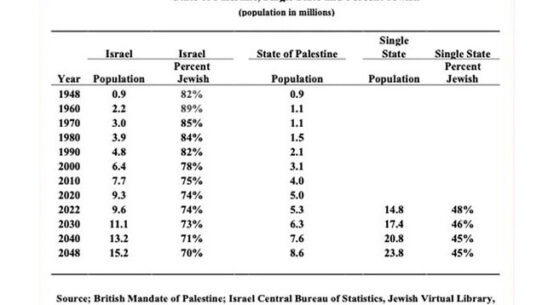
The provision shortfall in the banking sector of Bangladesh refers to the difference between the amount of money required to be set aside for bad loans and the actual amount of money set aside by the banks. A provision shortfall refers to a situation where a financial obligation or liability exceeds the cash on hand required to satisfy that obligation. This shortfall can be temporary or persistent. The importance of timely recognition and provision for credit losses is critical in promoting safe and sound banking systems and plays a vital role in bank regulation and supervision. One lesson learned from the 2007-09 global financial crisis was that the provisions kept were too little.
In business and finance, a shortfall can also refer to a negative discrepancy between income and expense, which may arise for various reasons, such as seasonal issues, cost overruns on projects, or slow collection of credit sales receivables. The provision shortfall in the banking industry can have significant implications, as it can lead to a deterioration of the provision base and an increase in bad loans, which, in turn, can negatively affect the bank’s financial health.
Scam-hit banks
Instances of powerful individuals conniving with political cliques and engaging in embezzlement in the Bangladeshi banking sector are commonplace. These individuals use their political connections to protect themselves from legal repercussions. The news of bank swindling has gone viral, and it is flooding the media.The defaulted loans soared to Tk 1, 20,656 crore at the end of December 2022 from Tk 1, 03,273 crore in the same period of 2021.It is a widespread problem in Bangladesh where powerful people often exploit their connections to escape accountability.
Calculation of provisioning in Bangladesh
Provisioning requirements in Bangladeshi banks are calculated based on guidelines provided by the Bangladesh Bank, the central bank of Bangladesh. Banks in Bangladesh are required to follow these guidelines for loan classification and provisioning Banks have to maintain provisioning against different categories of loans, including 0.25% to 2.0% for the general category, 20% against the substandard category, 50% against doubtful loans, and 100% against bad or loss category.
The provision shortfall issue is largely due to the high amount of non-performing loans in the banking sector, which exposes the faltering financial health of the banks . As of 2022, eight banks in Bangladesh had a provision shortfall of Tk 19,048 crore, exposing their risk for depositors.
But one expert is doubtful about the provisioning shortfall figure.”Many banks might have not calculated their provisioning accurately, so the overall shortfall declined, . Banks are hiding the right amount of their defaulted loans and tactfully showing a bigger operational profit. Such hide and seek game in banks is not good for the banking system. “
Causes of provision shortfall in Bangladesh
The causes of provision shortfall in Bangladeshi banks are multifaceted and complex. Some of the key factors contributing to this issue include a lack of corporate governance, weak risk management practices, ineffective credit assessment procedures and other seasonal issues.
The economic impact of the COVID-19 pandemic and Russia Ukraine war have further exacerbated the issue, as banks’ income generation has plummeted during this time, making it difficult to meet the provision deficit . Additionally, the periodic assessment of loans and advances by lending banks has been lacking, resulting in the entire loan portfolio being treated as good loans requiring no provision retention. some state-owned banks have been facing a shortfall for years due to a lack of corporate governance. Some banks witnessed a provision shortfall due to their weakened ability to maintain provisions against defaulted loans.
Inefficiency in loan recovery process
The loan recovery process in Bangladesh has been a subject of concern due to its inefficiencies. The Artha Rin Adalat Ain 2003 was enacted by the Bangladeshi legislature to address the loan recovery process by financial institutions and banks . Despite this, there are still several problems facing loan recovery in the country.
One of the challenges faced in loan recovery in Bangladesh is the rate of bad loan recovery. Moreover, the recovery process has been affected by problems such as borrower characteristics, farm-level causes, and the role of financial institutions in the recovery process. The recovery process in Bangladesh is also affected by the legal system. The legal system has a significant role in the loan recovery process. Making of laws does not make any sense if it’s not applied . The Artha Rin Adalat Ain 2003 has been perceived as a solution to the loan recovery process, but the complexities and delay in delivering justice have marred the The Artha Rin Adalat Ain 2003. To address the inefficiencies in the loan recovery process in Bangladesh, there is a need for banks, the legal system, and administrative bodies to play their due roles
Effects of provision shortfall are lethal
Provisioning shortfall is an indication of the weak financial health of a bank . Banks are required to maintain adequate provisioning to ensure that they have sufficient funds to cover potential losses from bad loans. Therefore, a provision shortfall can result in an erosion of the capital base of the banks, making them financially vulnerable . This can also reduce the lending capacity of banks as they may need to hold back on providing new loans to cover their provisioning shortfall . Weakened banking sector has a negative impact on the overall economy of Bangladesh. It increases the risk for investors, especially those who have invested in the affected banks. This is because banks with high provisioning shortfalls are considered riskier and may not be able to meet their financial obligations.
Remedial measures
There should be regulations that will bar banks from paying dividends unless they meet their deficits. Also banks must be made bound to calculate the required provisioning accurately. Banks with provision shortfall should be barred from further disbursements of loans and advances. , Political commitment, good governance, good credit, and good understanding along with bank boards’ strict stance on the issue may help to bring down defaulted loans to a great extent, ultimately minimizing provisioning requirement.
The provision shortfall in the banking sector of Bangladesh is a critical issue that can lead to a deterioration of the provision base and an increase in bad loans. It is the difference between the amount of money required to be set aside for bad loans and the actual amount of money set aside by the banks. The importance of timely recognition and provision for credit losses is critical in promoting safe and sound banking systems and plays a vital role in bank regulation and supervision. Therefore, it is essential to maintain an adequate level of provisions. An effective solution to the provision shortfall issue would require banks to maintain adequate provisions to ensure their financial stability and soundness.
Mohammad Abdul Karim is the Vice President of Social Islami Bank Ltd.


